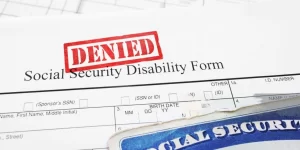When Will the Social Security Fairness Act Be Voted On?
Introduction:
The Social Security Fairness Act is an important piece of legislation that has been a topic of discussion among lawmakers and the public. Many people are eager to know when this act will be voted on and what it entails. In this article, we will provide valuable insights into the Social Security Fairness Act. Its current status and the pros and cons associated with it and when it might be voted on.
The Social Security Fairness Act is a topic of great interest to many Americans, especially those relying on Social Security benefits. In this article, we will explore the status of the act and its implications and what it means for you.
Background
The Social Security Fairness Act is a proposed piece of legislation aimed at addressing inequalities in Social Security benefits for certain groups of individuals. Including public sector employees such as teachers and government workers. The main issue the act seeks to resolve is the Windfall Elimination Provision (WEP) and the Government Pension Offset (GPO)
What is the Social Security Fairness Act?
The Social Security Fairness Act is a proposed piece of legislation aimed at addressing issues related to the Windfall Elimination Provision (WEP) and the Government Pension Offset (GPO). These provisions currently impact individuals who receive a pension from employment not covered by Social Security. Such as teachers and public sector workers. The act seeks to modify these provisions to provide fairer benefits for affected retirees.
Status of the Social Security Fairness Act
As of my last knowledge update in September 2023, the Social Security Fairness Act had not passed into law. However, legislative processes can change and it is essential to stay updated with the latest news and developments regarding this act. To check the most current status, you can also visit the official website of the U.S. Congress or consult reputable news sources.
Current Status of the Act

The Social Security Fairness Act was under consideration in the United States Congress. It hasn’t been set for a vote yet. How laws are made can be tricky and might change. So it is essential to stay updated with the latest news from your representatives and official government sources.
Pros and Cons
Pros:
Fairness: The act aims to rectify perceived inequalities in Social Security benefits for retirees affected by the WEP and GPO.
Improved Financial Security: If passed, the act could provide much needed financial relief to retirees who rely on non Social Security pensions.
Support for Retirees: It demonstrates support for retired teachers, public sector workers and others affected by the existing provisions.
Equity: The act aims to rectify perceived inequalities in Social Security benefits and providing a more equitable system for affected individuals.
Financial Relief: Passage of the act would offer financial relief to those who have seen reductions in their Social Security benefits due to the WEP and GPO.
Improved Retirement Planning: Public sector employees affected by the WEP and GPO would have a clearer understanding of their retirement income, making financial planning more manageable.
Cons:
Cost: Implementing the act could be costly for the government and may require adjustments to the Social Security system.
Complexity: Addressing the WEP and GPO issues might lead to a more complex Social Security system, potentially complicating benefit calculations.
Cost Concerns: Critics argue that implementing the act could have significant financial implications for the Social Security system.
Complexity: Changing the WEP and GPO rules could introduce complexity into the Social Security system.
Uncertain Outcome: The act’s fate is uncertain until it is voted on and potentially signed into law.
Here’s a simple table summarizing the pros and cons of the Social Security Fairness Act:
Social Security Fairness Act Overview | |
| What it aims to do | Make Social Security benefits fairer, especially for people affected by WEP and GPO. |
| Current Status (as of September 2023) | Not passed as of last update in September 2023. |
| Pros | · Fairer benefits
· Financial help for affected · individuals · Improved retirement planning · Fairness · Improved Financial Security · Support for Retirees |
| Cons | · Potential government costs
· Increased complexity in · Social Security system · Cost Concerns · Complexity · Uncertain Outcome |
Please note that these points are a simplified representation of the pros and cons and do not cover all possible arguments or nuances surrounding the Social Security Fairness Act.
When Will It Be Voted On?

The exact date for voting on the Social Security Fairness Act is uncertain and can depend on various factors. Including legislative priorities and political considerations. To stay informed you can:
- Contact your congressional representatives for updates.
- Monitor official government websites for news and announcements.
- Stay engaged with advocacy groups focused on Social Security reform.
Also Read:
- Whats the Firetruck Game: A Comprehensive Overview
- Unlocking Tranquility: The technique codex of the tranquil mind
- How long is a soccer game in high school?
- How to change Fiverr username: A Step – by – Step Guide
Conclusion
The Social Security Fairness Act holds the promise of providing fairer benefits to retirees affected by the WEP and GPO. While its fate remains uncertain. It is crucial for individuals concerned about this issue to stay informed, engage with their representatives and monitor legislative developments.
Please note that legislative processes are dynamic and the status of the Social Security Fairness Act may have changed since our last update in September 2023. It’s essential to verify the latest information through official sources and stay engaged with the issue to advocate for your interests.
As of the last update in September 2023, the Social Security Fairness Act had not yet been passed into law. However, it remains a topic of discussion and advocacy among affected individuals and organizations. To stay informed about its status and any changes and it is advisable to follow updates from authoritative sources.
FAQs
Q1: when will the social security fairness act be voted on?
The status and schedule for voting on the Social Security Fairness Act can change over time, and it would be best to consult a reliable and up-to-date source for the most current information. You can check the official website of the U.S. Congress, contact your local representatives, or follow news updates to stay informed about the progress of this legislation.
Q2: Did the social security fairness act passed
The status of the Social Security Fairness Act is that it had not passed at that time. Please note that legislative outcomes can change, and it’s essential to consult more recent sources for the most up-to-date information on whether the act has passed or undergone any developments since then.
Q3: Can I receive both a non-Social Security pension and Social Security benefits if the act passes?
If the act is passed, it may allow for more favorable benefits, but the specifics would depend on the final legislation.
Q4: How can I voice my support for the Social Security Fairness Act?
You can contact your congressional representatives, join advocacy groups, and stay informed about opportunities to support the act.
Q5: What is the Social Security Fairness Act?
The Social Security Fairness Act is proposed legislation aimed at addressing inequalities in Social Security benefits, particularly related to the Windfall Elimination Provision (WEP) and the Government Pension Offset (GPO).
Q6: Who would benefit from the Social Security Fairness Act?
Public sector employees, such as teachers and government workers, who are affected by the WEP and GPO, would benefit from the act if it becomes law.
Q7: Where can I check the current status of the Social Security Fairness Act?
You can check the current status of the Social Security Fairness Act by visiting the official website of the U.S. Congress or consulting reputable news sources.






2 Comments